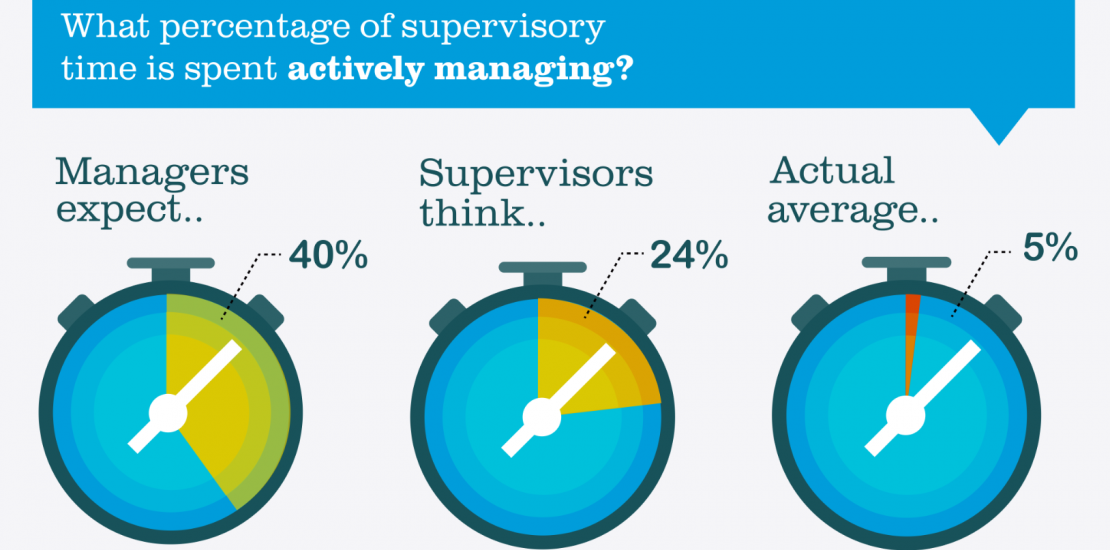
Hey there! Yes, you, the one juggling a million things and constantly feeling like there aren’t enough hours in the day. Let me tell you a little secret – managers are just like you. They struggle with time management too, but here’s the thing: they spend most of their time on unexpected tasks. Think about it. What do you imagine a manager’s day to look like? Meetings, paperwork, and an overflowing inbox, right? Well, while those tasks are certainly part of a manager’s life, they may not be the main time-drainers.
In this article, we’ll reveal what managers actually prioritize in their day-to-day. By understanding how managers spend their time, you’ll gain valuable insight to up your time management game. Buckle up and prepare to discover the truth about where managers invest most of their energy. Trust us, you don’t want to miss this!
Overview
Managers play a crucial role in organizations, overseeing their team’s performance and achieving company goals. They dedicate ample time to tasks and responsibilities, ensuring smooth operations.
Communication is a primary area for managers to invest time. They constantly exchange information, provide feedback, and coordinate activities with team members, superiors, and stakeholders. Effective communication is essential to convey expectations, address concerns, and keep everyone aligned with objectives.
Another important aspect of a manager’s role is decision-making. Managers devote time analyzing data, evaluating alternatives, and making decisions to solve problems and drive progress. They must consider factors such as budget constraints, resource allocation, and market conditions to make informed decisions aligned with the organization’s objectives.
Managers also invest time in planning and organizing. They develop strategies, set objectives, and create action plans to guide their team in achieving desired outcomes. They allocate resources, assign tasks, and establish deadlines to ensure efficient and effective work.
Managers dedicate a significant amount of time to developing their team members. They guide, support, and mentor individuals to assist in their personal and professional growth. Managers conduct performance evaluations, give feedback, and identify training opportunities to enhance their team’s skills.
Overall, managers prioritize communication, decision-making, planning, organization, and team development. These activities are vital for effective leadership and goal achievement. By investing time in these areas, managers can drive performance, promote collaboration, and ensure the company’s long-term success.
Key Features or Points
Managers spend most of their time in activities essential for the organization’s effectiveness. These activities can be categorized into key features:
1. Planning: Managers spend significant time on planning. This involves setting goals, determining strategies, and creating action plans. Planning provides a roadmap and helps allocate resources.
2. Organizing: Managers also spend time organizing. This involves structuring the organization, assigning tasks, and coordinating activities. Organizing ensures everyone knows their role and works together towards common goals.
3. Managers need to spend time leading their teams. This includes motivating and inspiring employees, guiding and directing, and resolving conflicts. Effective leadership is vital for creating a positive work culture and achieving organizational success.
4. Managers also spend time controlling activities. This includes monitoring performance, comparing actual results with planned objectives, and taking corrective actions when necessary. Controlling helps managers ensure that the organization is on track and making progress towards its goals.
5. Communication: Managers spend significant time communicating with employees, stakeholders, and other managers. Effective communication ensures that everyone has the information needed to perform tasks, fosters collaboration and teamwork, and facilitates decision-making. These points highlight the activities managers spend most of their time on. However, the time spent on each activity may vary depending on management level, industry, and organizational needs. Nevertheless, these features provide a framework for understanding the role and responsibilities of managers.
Table: Activities and Time Allocation of Managers
Key Feature Description Time Allocation
Planning Setting goals, determining strategies, creating action plans 20%
Organizing Structuring the organization, assigning tasks, coordinating activities 25%
Leading Motivating employees, providing guidance, resolving conflicts 30%
Controlling Monitoring performance, comparing results, taking corrective actions 15%
Communication Communicating with employees, stakeholders, other managers 10%
Practical Tips or Strategies
Being a manager requires effective time management skills to handle multiple tasks and responsibilities. Here are practical tips for managers to make the most of their time:
1. Prioritize tasks: Start by identifying and focusing on important and urgent tasks. This ensures efficient time management and timely completion of critical tasks.
2. Delegate responsibilities: A manager oversees a team and distributes work efficiently. Delegating tasks to team members shares the workload and frees up the manager’s time for other important tasks.
3. Clear goals and deadlines: Setting goals and deadlines helps managers stay organized and focused. It prioritizes tasks and ensures timely completion.
4. Avoid multitasking: Multitasking may seem efficient, but it often reduces productivity and work quality. Managers should focus on one task at a time for efficient and accurate completion.
5. Limit distractions: Managers should create a distraction-free workspace. This involves silencing notifications, closing unnecessary tabs or apps, and dedicating focused work time.
6. Utilize technology: Time management tools and applications can help managers stay organized and manage tasks effectively. Using these tools can streamline processes and improve productivity.
7. Take regular breaks: Managers should take short breaks to recharge and avoid burnout. Breaks help maintain focus and productivity throughout the day.
By implementing practical tips and strategies, managers can optimize their time and handle their responsibilities effectively.
Personal Perspective or Case Study
In my experience as a manager, a substantial amount of time is spent on various tasks. One area that requires significant attention is communication. As a manager, it is crucial to maintain open lines of communication with team members, superiors, and stakeholders. This involves attending meetings, responding to emails, and engaging in one-on-one conversations. These interactions ensure that everyone is on the same page and work is being carried out effectively.
Another aspect of managing that occupies a significant portion of my time is decision-making. Managers frequently make difficult decisions, including resolving team conflicts and determining the best course of action for a project. These decisions demand thoughtful consideration, evaluating different factors, and occasionally consulting with colleagues or experts. Managers must invest sufficient time in these decision-making processes to guarantee optimal choices.
Managers not only communicate and make decisions, but they also plan and strategize. This involves setting goals, creating action plans, and allocating resources. It requires understanding the organization’s objectives and market trends. Without proper planning and strategizing, a manager may struggle to guide their team and organization.
Overall, managers spend most of their time on communication, decision-making, and planning. These areas require careful attention for effective leadership and organizational success.
Interviews
Interviews are a key tool used by managers to select candidates. They spend time assessing skills, qualifications, and personality. This involves asking questions and observing responses, body language. Managers start interviews by asking for an overview of experience and qualifications to evaluate if they align with the job’s requirements. They may then ask more specific questions about skills, problem-solving abilities, work ethic, motivation, career goals, and teamwork ability.
In addition to asking questions, managers also closely observe non-verbal cues during interviews. They pay attention to candidates’ body language, eye contact, and demeanor to gain insights into their confidence, professionalism, and interpersonal skills. This helps determine whether a candidate will fit the company culture and work well with existing team members.
Interviews play a crucial role in the selection process. By conducting thorough interviews, managers can make informed decisions and choose candidates with the necessary qualifications and traits to excel in their roles. It also gives candidates the chance to showcase their abilities and demonstrate why they are the best fit for the job.
Conclusion: Reflecting on “Related Resources”
We addressed the various “Related Resources” managers can use to enhance their effectiveness and productivity. Time management tools, leadership development programs, and communication strategies are key elements in a manager’s toolkit.
Incorporating these resources into your own life or situation can lead to significant improvements in efficiency, decision-making, and team collaboration. You have the power to positively impact your own performance, as well as the success of your team and organization.
How can you apply these insights to your managerial role or career?
First, assess your current time management practices. Can you improve? Consider using time tracking tools or prioritization techniques to optimize your productivity.
Second, enroll in leadership development programs or courses that align with your goals and interests. Continuous learning enhances skills and provides networking opportunities.
Third, improve your communication skills. Actively listen to team members, provide clear feedback, and foster open dialogue. Effective communication is the foundation of strong leadership.
Becoming an effective manager is a continuous process that necessitates dedication, self-reflection, and adaptability. By embracing the “Related Resources” and committing to growing constantly, you can position yourself as a successful and influential leader. Take action now and begin implementing these strategies to observe transformative changes in your managerial journey.
